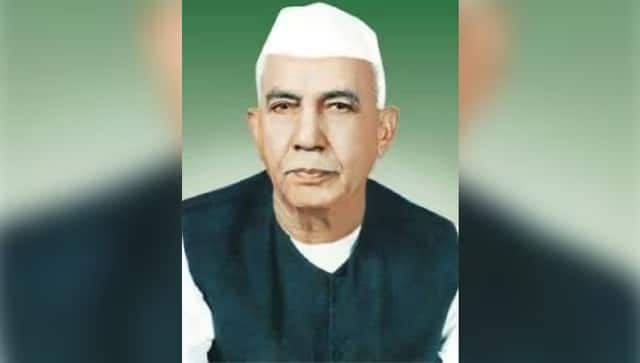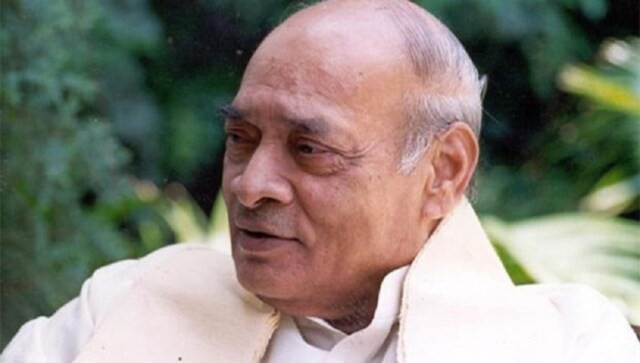PV Narasimha Rao, Chaudhary Charan Singh and MS Swaminathan – three new recipients of the Bharat Ratna The Narendra Modi government on Friday announced Bharat Ratnas for PV Narasimha Rao, Chaudhary Charan Singh andMS Swaminathan. Rao and Singh are former prime ministers, while Swaminathan was known as the ‘Father of the Green Revolution.’ Let’s take a closer look at all three PV Narasimha Rao Rao was born in 1921 in Andhra Pradesh’s Karimnagar. As per NDTV, he went to Osmania University in Hyderabad, Bombay University and Nagpur University.
Rao was Chief Minister of Andhra Pradesh in early 1970s.
He also a slew of portfolios including external affairs, defence, home and HRD in the Indira Gandhi and Rajiv Gandhi governments. Rao made history by becoming first politician from outside the Nehru-Gandhi family to head a government at the Centre for a full five-year term. He also pioneered India’s famous liberalisation process in the early 90s in India with then finance minister Manmohan Singh by his side. [caption id=“attachment_12996452” align=“alignnone” width=“640”] Former prime minister PV Narasimha Rao with then finance minister Manmohan SIngh. File image: Wikimedia Commons[/caption] However, it wasn’t smooth sailing after he left the Prime Minister’s chair in 1996. Rao faced charges in three criminal cases including bribing MPs to secure a majority in the Lok Sabha. However, he was acquitted in all the three cases. Rao passed away in December 2004 at the All India Institute of Medical Sciences. He suffered from multiple ailments and had a history of heart issues. Modi wrote on X, “Delighted to share that our former Prime Minister, Shri PV Narasimha Rao Garu, will be honoured with the Bharat Ratna. As a distinguished scholar and statesman, Narasimha Rao Garu served India extensively in various capacities. He is equally remembered for the work he did as Chief Minister of Andhra Pradesh, Union Minister, and as a Member of Parliament and Legislative Assembly for many years. His visionary leadership was instrumental in making India economically advanced, laying a solid foundation for the country’s prosperity and growth." Narasimha Rao Garu’s tenure as Prime Minister was marked by significant measures that opened India to global markets, fostering a new era of economic development. Furthermore, his contributions to India’s foreign policy, language and education sectors underscore his multifaceted legacy as a leader who not only steered India through critical transformations but also enriched its cultural and intellectual heritage.” Charan Singh Singh was born in 1902 in Uttar Pradesh’s Meerut. As per NDTV, Singh first got elected to the Uttar Pradesh Legislative Assembly from Chhaprauli in 1937. Singh would go on to represent the constituency in 1946, 1952, 1962 and 1967. Singh, who hailed from the Jat community, was a socialist who enjoyed strong support among farmers. One of the leading politicians of his era, Singh would become Uttar Pradesh chief minister in 1967 and 1970. [caption id=“attachment_13708342” align=“alignnone” width=“640”]
 File image of Chaudhary Charan Singh. Wikimedia Commons[/caption] Singh served as India’s prime minister between July 1979 and January 1980.
File image of Chaudhary Charan Singh. Wikimedia Commons[/caption] Singh served as India’s prime minister between July 1979 and January 1980.
Nicknamed ‘King of the Jats,’ Singh remained an enigma to the end, as per India Today.
“A man of fiercely-held principles and ideology, Charan Singh was also the master manipulator, willing to switch sides at a moment’s notice if it suited his political ambitions,” the piece noted. Singh passed away in 1987. “Bharat Ratna to Charan Singh dedicated to his incomparable contribution to country,” the prime minister wrote on X. MS Swaminathan The ‘Father of India’s Green revolution’ was born in 1925. As per NDTV, Swaminathan earned a BSc degree in Zoology from Thiruvananthapuram’s Maharajas College and Agricultural Sciences from the Coimbatore Agricultural College. As per Indian Express, Swaminathan initially cleared the civil services exam before deciding to dive into the field of agriculture. Swaminathan would go on to do an MSc in Agricultural Sciences (specialising in genetics and plant breeding) from the Indian Agricultural Research Institute (IARI), and a PhD from the prestigious Cambridge University.
Swaminathan was a part of every key initiative connected to food security and agriculture in India in the 1960s and 1970s.
As per I_ndian Express,_ Swaminathan would serve at several high profile institutions including as independent chairman of the Food and Agricultural Organisation Council (1981-85), president of the International Union for the Conservation of Nature and Natural Resources (1984-90), president of the World Wide Fund for Nature (India) from 1989-96 and the director general of Indian Council of Agricultural Research (ICAR). He also served in the Rajya Sabha from 2007 to 2013. [caption id=“attachment_13708002” align=“alignnone” width=“640”] Prime Minister Narendra Modi and MS Swaminathan.[/caption] Swaminathan passed away in September 2023 at the age of 98. At the time of his death, he had received 84 honorary doctorate degrees from universities around the world. He was also a Fellow of many of the leading scientific academies including the Royal Society of London and the US National Academy of Sciences. He is survived by three daughters including Dr Dr Soumya Swaminathan, formerly chief scientist of the World Health Organisation. “Swaminathan made monumental contributions to country in agriculture and farmers’ welfare,” Modi said on X. He played a pivotal role in helping India achieve self-reliance in agriculture and made outstanding efforts in modernising it, the prime minister said. “It is a matter of immense joy that the Government of India is conferring the Bharat Ratna on Dr. MS Swaminathan Ji, in recognition of his monumental contributions to our nation in agriculture and farmers’ welfare. He played a pivotal role in helping India achieve self-reliance in agriculture during challenging times and made outstanding efforts towards modernizing Indian agriculture. We also recognise his invaluable work as an innovator and mentor and encouraging learning and research among several students. Dr Swaminathan’s visionary leadership has not only transformed Indian agriculture but also ensured the nation’s food security and prosperity. He was someone I knew closely and l always valued his insights and inputs.” With inputs from agencies


)

)
)
)
)
)
)
)
)



